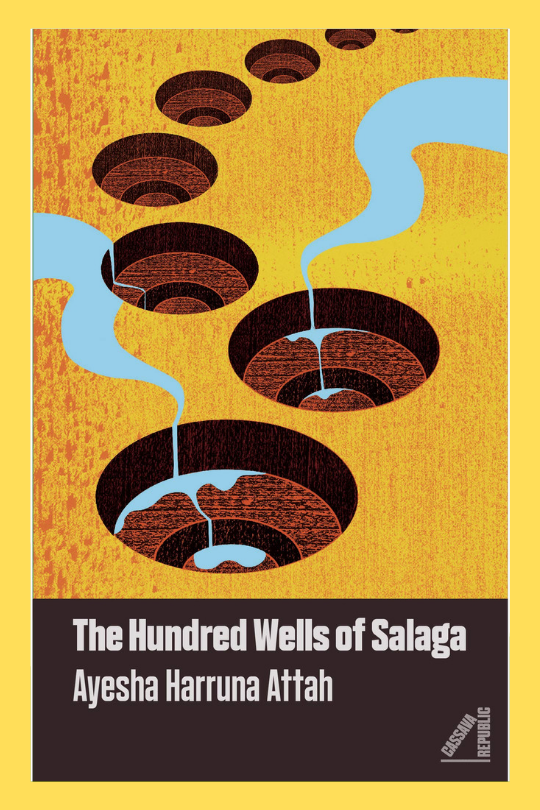The Hundred Wells of Salaga|Ayesha Harruna Attah
Ayesha Harruna Attah’s novel The Hundred Wells of Salaga is a poignant and delightful trip to nineteenth century Ghana on the cusp of colonial rule. The novel derives its name from the historically bustling, cosmopolitan town of Salaga, a confluence for West-African traders and known for its slave market and numerous hand dug wells where slaves were washed in preparation for sale. Female agency, sexism, slavery, war, and foreign interference are examined through the perspectives of its two protagonists: Aminah and Wurche.
Aminah leads a peaceful life with her family in the town of Botu. She is resilient and dependable, and dreams of travelling far and wide to sell shoes like her father, even though “no woman in Botu made shoes.” But that dream is soon squashed when slave raiders attack Botu, taking Aminah captive. In Salaga, she is sold to Wurche, a pragmatic, ambitious and strong-willed princess, who prefers political meetings and education over housework that is “designed to please a husband.”
Amid a power tussle among the royals, Wurche grudgingly marries a prince from a friendly town to help her father’s faction win. But when marriage becomes oppressive, she runs away, settling in enemy territory with her son and Aminah, where they build a new life.
With minor references to the transatlantic slave trade, The Hundred Wells of Salaga concerns itself with how Western involvement in slavery altered the institution, one that pre-existed their arrival to Africa, transforming it into a business that accelerated kidnappings and necessitated frequent slave raids.
“Before your people arrived, slaves were people caught in war or people whose families couldn’t take care of them,” says Wurche to a German officer. “A lot of them married into even royal families.”
Indeed, some former slaves, like Nigeria’s King Jaja of Opobo, became royalty, but many others’ experienced despicably inhumanity until death. But even in situations where slaves and their owners managed an ‘amicable’ relationship, the desire to direct one’s life and destiny never disappeared. It’s this itch Aminah scratches when she asks Wurche’s religious teacher if she’ll ever be free again, despite the benevolence of her owner.
The plight of vassal states and marriage also stand in as forms of slavery. So even though Wurche is freeborn, as a wife and a woman, her rights and freedom remain subordinate to those of men.
“Only after I became a widow did I have peace,” confesses Wurche’s grandmother when she complains about her husband. It’s a remark Wurche’s widowed teacher echoes again, demonstrating that freedom is more than being physical constrained.
The Hundred Wells of Salaga is a story about courage, love, loss and family, reaching deep into the reservoirs of human emotions and complexities to draw a beautifully interwoven story with strong female viewpoints, three-dimensional characters and clever narrative.
A version of this review appeared in the 2019 Jun.-Aug. edition of Inzozi, Rwandair’s in-flight magazine.
You May Also Like











